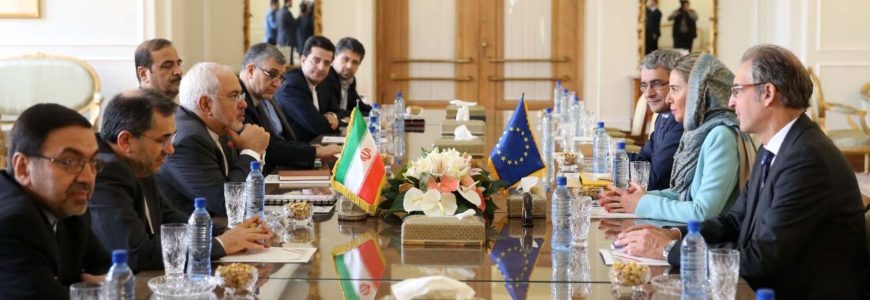
In a recent speech, President Rouhani declared that Iran had achieved a “rare victory” insofar as Europe is seeking ways to sustain its trade with Iran in the face of US sanctions. While this may be true in a political sense, practically speaking, the President is declaring victory too soon. Iran should be doing much more to ensure Europe’s efforts result in solutions that can maximize the flow of trade while banking ties remain restricted.
As US sanctions are reimposed, European efforts to sustain trade center on the creation of a new “special purpose vehicle” (SPV) which will serve to reduce the reliance of Europe-Iran commerce on the international financial system. The SPV, which will be owned by a group of European states with strong commercial ties to Iran and will help coordinate the “netting” of Europe-Iran trade, minimizing the need for cross-border financial transactions. There seems to be serious political will. In an interview with the Financial Times, French economy minister Bruno Le Maire expressed his hope that the SPV would evolve into a “real intergovernmental institution that will serve as the financial instrument of Europe’s independence.” The new mechanism “should allow us to trade in any product, with any country, so long as it is in line with international law and Europe’s commitments.”
The necessary technical work is proving complex, but continues to move forward. While the SPV is expected to be legally registered in the next few weeks, it will take more time for the new entity to become fully operational. The Iranian government seems content to exercise “strategic patience” as it waits for the SPV to come online. But while this patience is commendable, Iran should be taking a much more active role in shaping the SPV to suit its needs.

